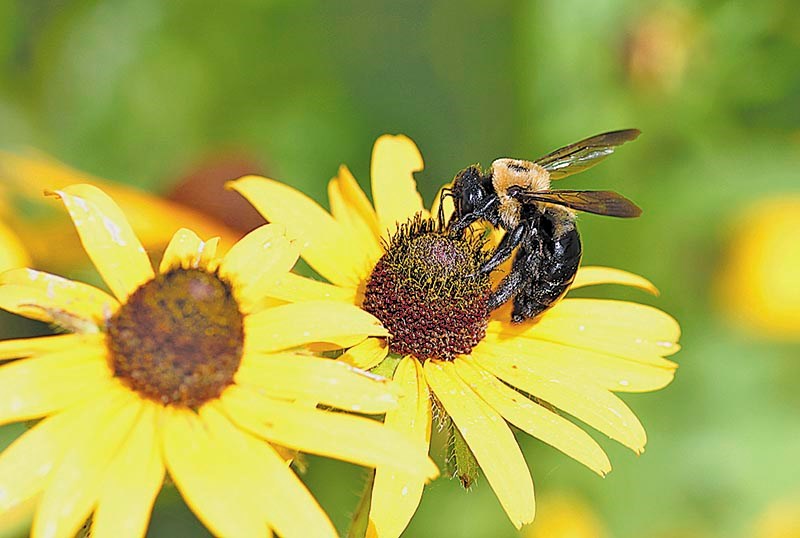George Mathewson
Recently this newspaper profiled beekeeper Ray Heeringa, who lost 80% of his bees last winter, and the winter before.
The Sarnia man is convinced a relatively new and pervasive insecticide factored into the death of his hives and those of other Ontario apiculturists, who collectively lost 58% of their bees last winter.
Neonicotinoids are used as seed treatments on more than 140 North American crops, including our big three in Sarnia-Lambton: corn, soybeans and wheat.
Though popular with cash crop farmers, neonics should be banned, Heeringa says, to protect honey bees, bumblebees and other pollinators that play a critical role in our food supply.
But now a new study suggests home gardens might also be a source of exposure.
Researchers from the environmental group Friends of the Earth collected samples of common flowers sold at major garden centres in 18 U.S. and Canadian cities and sent them to an independent laboratory for testing.
Neonics were found in 51% of the 71 commercial nursery plants tested. At a garden centre in London 100% of the plants tested contained varying levels of the insecticides.
As someone who likes to plant a few flowers around the yard each spring I found the study troubling. Never had it occurred to me that my geraniums might impact Heeringa’s hives and others like them, which were already stressed by parasitic mites and severe weather.
Bees and other pollinators are necessary to produce at least one-third of the food crops we eat every day.
Neonicotinoids are systemic pesticides, which means they are taken up through the roots and leaves and distributed throughout the entire plant, including the pollen.
A growing body of research suggests they pose an environmental threat. Europe banned them last year and the U.S. Environmental Protection Agency is reviewing their use.
Ontario has become the first Canadian province to respond. The agriculture ministry is re-evaluating all uses of neonics and recently said it will require farmers and other commercial growers to apply for permits.
But until policy-makers catch up to the science, what does the home gardener do?
Local environmental educator Kim Gledhill said one way to ensure a bee-friendly yard is to grow your own flowers using untreated seeds, which are available at garden centres.
She also recommends telling commercial sellers that you prefer to buy plants that were grown organically.
Home Depot has responded to consumer concerns by saying it will begin labelling flowers that contain neonics, a move that Gledhill commended.
“Then you can make a choice,” she said. “People are concerned, and they are talking about this around the world. Without bees we’re in big trouble.”
